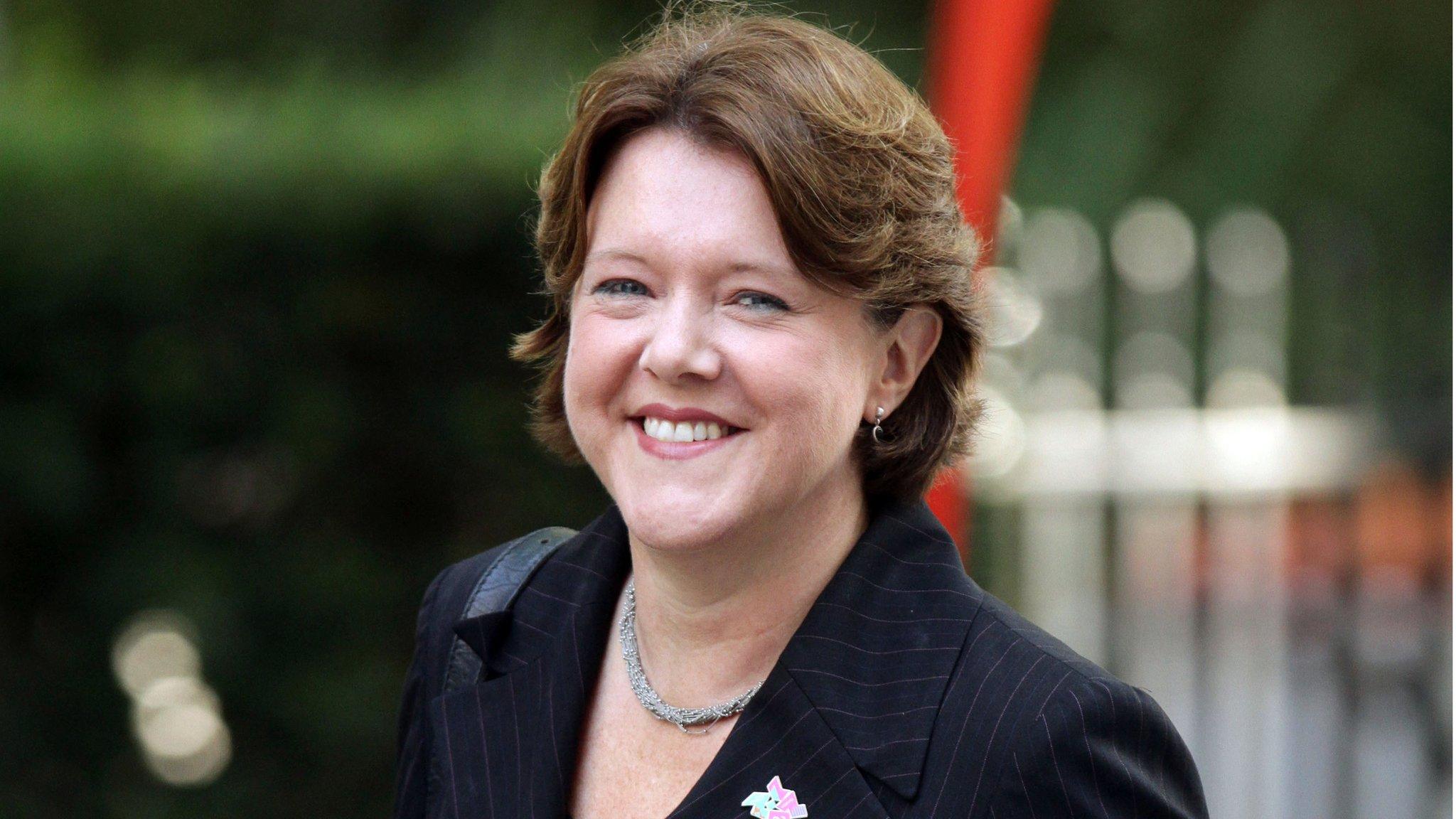Marie Stopes clinic to work with health regulator, Stormont committee told
- Published
The first private clinic to offer abortions to women in Northern Ireland operates fully within the current law, a Stormont committee has been told.
The Marie Stopes clinic opened in Belfast in October, amid protests from pro-life groups.
Tracey McNeill of Marie Stopes told the Justice Committee said it had found a way forward to work with health regulators, the RQIA.
Abortions are not illegal in NI but are very strictly controlled.
Ms McNeill, director of Marie Stopes International, said that while they are not required to be regulated they want to work within the legal framework in Northern Ireland.
She said they had met the RQIA, to "open our doors and be very transparent".
"We want to be regulated. Our application has been submitted," she told the committee.
Three representatives of the clinic are giving evidence to the committee about how they are complying with criminal law in relation to providing abortions in Northern Ireland.
Health Minister Edwin Poots said: "Marie Stopes has confirmed that they intend to fully comply with all laws and regulatory systems in Northern Ireland.
"All organisations delivering health and social care are expected to operate within the existing legal framework.
"I am currently exploring options to help ensure public confidence."
Northern Ireland, unlike the rest of the UK, is not covered by an Abortion Act.
'Strict assessment'
Abortions can be carried out only to preserve the life of the mother or if continuing the pregnancy would have other serious, permanent physical or mental health effects.
There is strict assessment regarding any impact on mental well-being and the woman must consult with two clinicians.
But Attorney General John Larkin - who is the chief legal advisor to the Stormont executive - wrote to the Stormont Justice Committee inviting them to investigate the operations of the Belfast clinic.
The Marie Stopes clinic has said it will carry out medical, not surgical, procedures only up to nine weeks gestation and only within the existing legal framework.
It said that the health professionals in the clinic will be from Northern Ireland and that they will make the assessments, although the views of the woman's own GP will be taken into consideration.
The clinic's services will also be available to women from the Republic of Ireland, if they meet the legal criteria in Northern Ireland.
The strict rules on abortion in Northern Ireland do not prevent women from travelling to the rest of the UK for the procedure.
A 24-week limit for abortion applies in England, Wales and Scotland, where abortions are allowed under certain conditions, including that continuing with the pregnancy would involve a greater risk to the physical or mental health of the woman, or her existing children, than having a termination.
The permission of two doctors - or one in an emergency - is also needed.
Abortions after 24 weeks are allowed in Britain but only in extreme circumstances - if there is grave risk to the life of the woman, evidence of severe foetal abnormality, or risk of grave physical and mental injury to the woman.
Abortion Rights welcomed its opening.
- Published18 October 2012
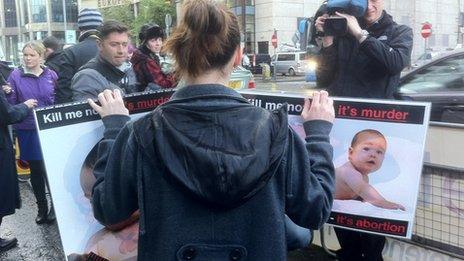
- Published11 October 2012
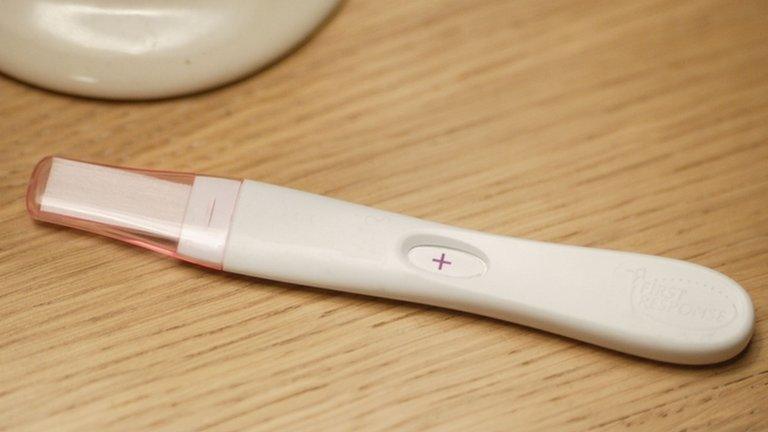
- Published11 October 2012

- Published22 October 2019
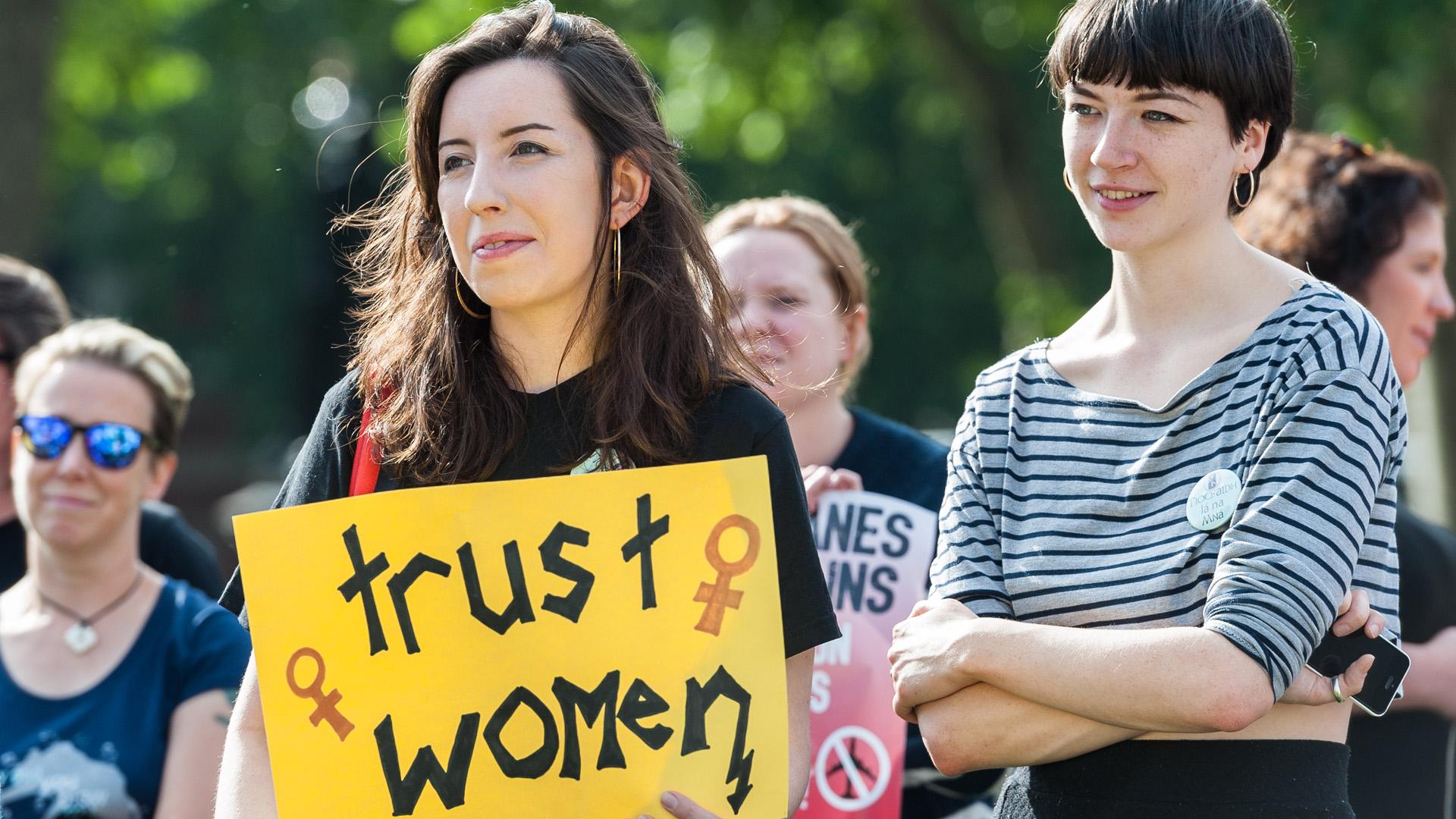
- Published24 September 2012
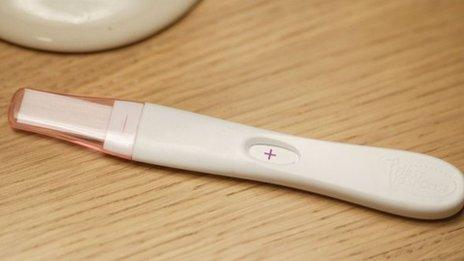
- Published3 October 2012
